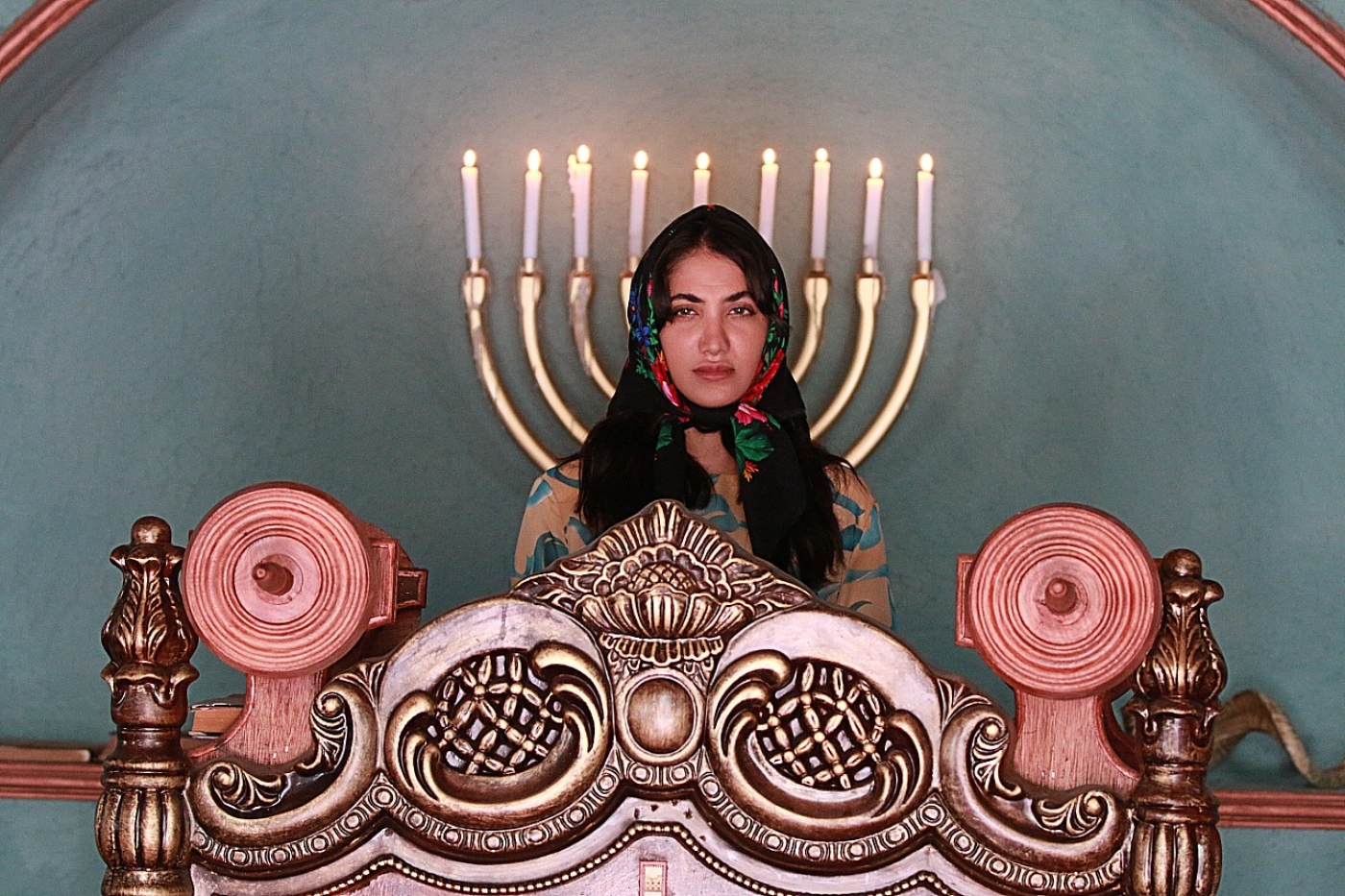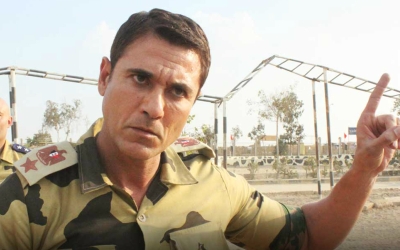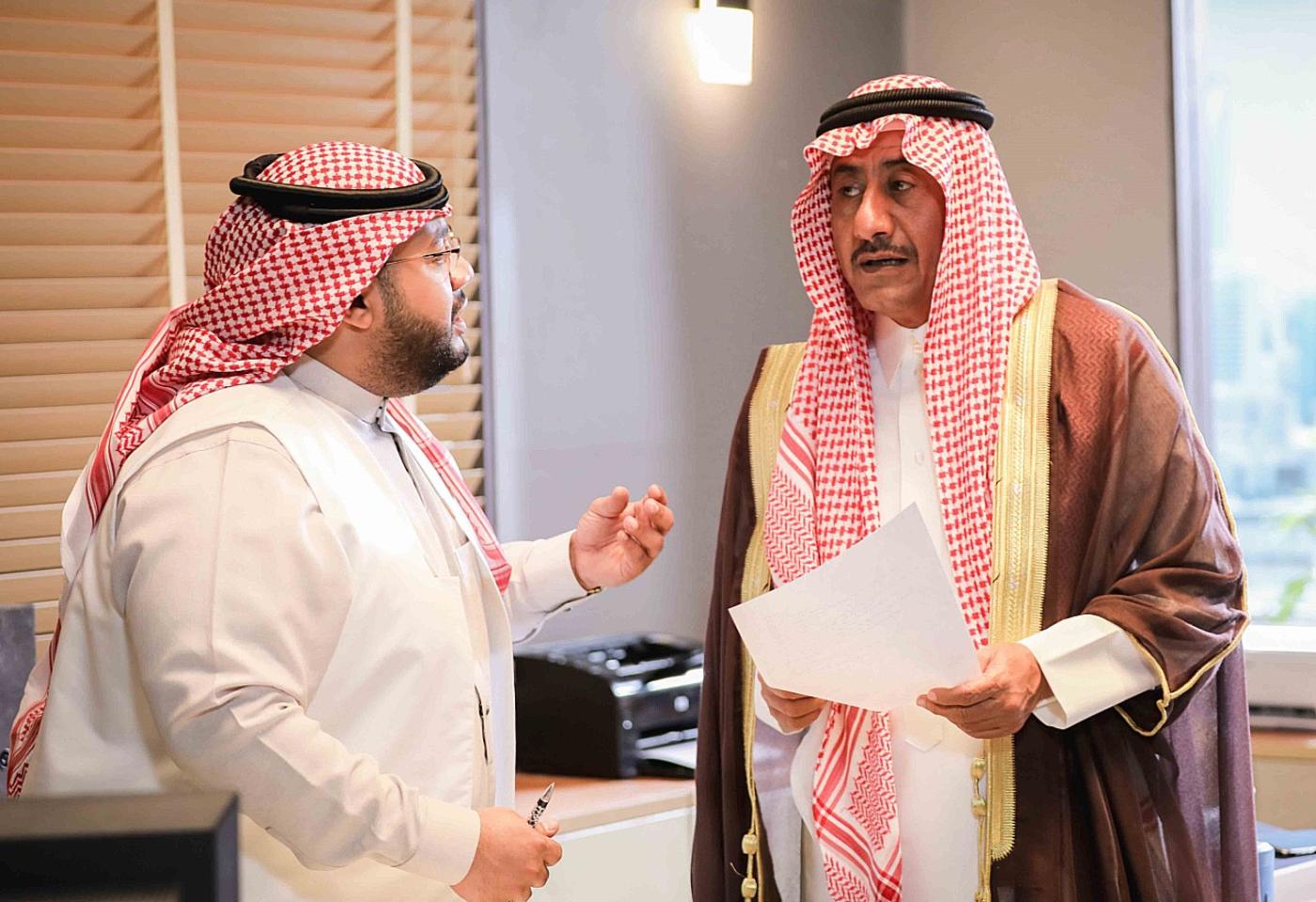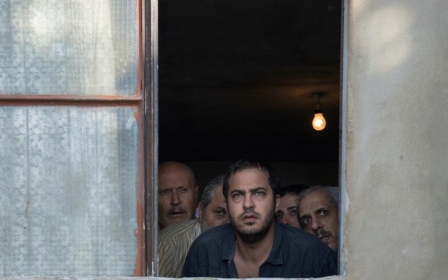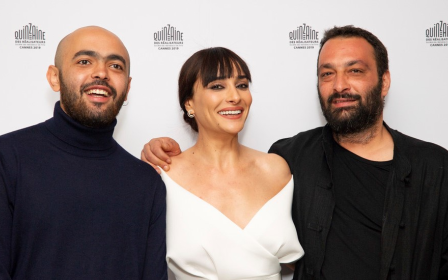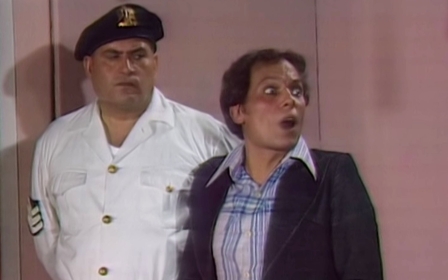Ramadan TV: Seven things we learned from the 2020 shows
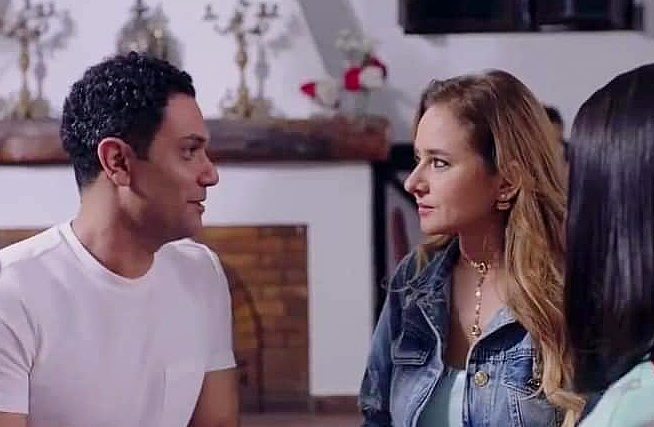
Even coronavirus was unable to halt the unstoppable media machine that is Ramadan TV. Early fears of a truncated season were dashed as shows - taking advantage of relaxed government attitudes towards TV production - scrambled to finish shooting in time for the Muslim holy month, when millions are glued to the small screen.
But the results were patchy, to put it mildly. Like every other year, they still grab the headlines: Egyptian actor Hisham Selim publicly announced that his daughter had transitioned to become a man; Saudi Arabia was accused of producing serials that normalise relations with Israel; and a photo of a real-life victim of the Syrian government appeared in a detective drama as a fictional Egyptian character, murdered by her lover.
The season demonstrated that the freedoms won in the Arab world - and especially Egypt, home to MENA’s biggest entertainment industry - in the immediate aftermath of the 2011 uprisings are now nothing but a distant memory. Governments have extended their control over the content of popular shows, as coverage of the region’s everyday realities has become taboo, alongside the long-established trinity of sex, religion and political dissent.
The state of Arab TV is akin to that in the US industry under the Hays Code, which dictated the moral content of Hollywood films until the 1960s: good must ultimately prevail, moral ambiguity has no place and any on-screen moral deviation must be punished before the end credits roll.
New MEE newsletter: Jerusalem Dispatch
Sign up to get the latest insights and analysis on Israel-Palestine, alongside Turkey Unpacked and other MEE newsletters
Arab TV once offered a doorway into the region’s social reality: now it merely promotes the distorted reality that governments allow to be screened, of moral conservatism, and of opportunistic politics forced on each population by their respective authorities. It would now take a miracle for the sector to regain any semblance of autonomy.
TV in the Middle East relies on money and so mindless escapism sells. As the freedom to engage with reality continues to shrink, so broadcasters and producers turn to comedies, thrillers and toothless social dramas that skim the reality of the Arab street or else avoid it altogether.
As the end of month approached, audience disappointment became the over-riding sentiment
This year’s season did at least show that Arab TV drama continues to advance technically: visual styles are no longer as stodgy as they were during the 1980s and 1990s; episodes have faster pacing; the habitually histrionic performances have been toned down; and production values radically improved. But the quality of the writing remains erratic at best, and is generally poor at worst.
The region’s template of 30-episode series, forced on them by the daily demands of the month-long season, is a bane for TV writers, who unavoidably end up cramming their stories with superfluous dialogue, repetitive action and banal subplots to fill in airtime.
There was plenty to get excited about at the start of the season: diverse genres, hefty star presence and untraditional topics. But as the end of month approached, audience disappointment became the overriding sentiment. The standout success was 100 Faces (B-100 Wesh, see below), with its heightened creativity and ingenuity. Such skills are mandatory for storytellers to avoid the region’s often unbending censorship - but these are what the majority of this year’s shows sorely lacked.
1. An ensemble caper took top honours
Egyptian director Kamla Abu Zikry is responsible for some of the most acclaimed series of the past decade (Sunset Oasis, A Girl Named Zat, Women’s Jail). Nelly Karim and Asser Yassin, her regular leads, are among a handful of performers who have solid records across TV and cinema. Few, however, expected 100 Faces (Be-100 Wesh), their first foray into TV comedy, to end up the best show of the Ramadan season - and by a long stretch. It’s also one of the rare major Egyptian series not produced by Synergy, the conglomerate affiliated to Egyptian military intelligence.
Abu Zikry’s caper sees Karim’s working-class swindler, Sokkar, team up with Yassin’s debonair upper-class hustler, Omar, for a series of con jobs, all inspired by real-life hoaxes, while falling in love. Boasting a stellar cast primarily comprised of independent talent, who inject the series with spontaneity and ease, 100 Faces is everything you hope that a Ramadan series will be: smart, perceptive, expertly made and lots of fun. Indeed, there’s a Robert Altman feel to the frequently overlapping dialogue in its naturalism and verve that lends the proceedings extra dynamism.
Artistry aside, what elevates 100 Faces above the pack is its socio-economic subtext, which thankfully contains none of the religious moral codes enforced on most shows. Beyond the entertaining heists and setups lies a shrewd portrait of Sisi-era Egypt governed by neoliberalism and class. There’s also a spiritual vacuum at the heart of Abu Zikry’s story, augmented by the absence of moral authorities. This is a country ruled by greed, dominated by a hunger for wealth and social climbing, where hard work and education have no value.
The fact that Abu Zikry unveils this reality in such a seamless and subtle fashion is testament to her growing confidence as a TV director at the top of her game. She is also to be lauded for working around the censorship rules with an ending that lends her lovable thieves a cop-out of sorts, while paving the way for an already confirmed second season.
2. …but comedies overall failed to catch fire
The commercial and critical success of 100 Faces perfectly illustrates everything that is wrong with Arab TV comedy.
The Ramadan season had no dearth of star-studded sitcoms and long-format comedies. They included Valentino from Adel Imam, the Arab world’s biggest comedy star; Men of the House, the new collaboration between Ahmed Fahmy and Akram Hosni; Keep Me Company and Amro & Diab, indistinguishable sitcoms from up-and-coming comedy stars; and countless middle-of-the-road shows from the Gulf (Exit 7, Model, Billion Riyal). One of the worst was Extra Sugar (Sokar Zeyada), the pointless, humourless Golden Girls remake starring veteran Egyptian stars Nadia El Guindy and Nabila Ebied.
All of these comedies suffered one major problem - a lack of humour. Unlike 100 Faces, they had no sophistication, chemistry between performers, engaging storytelling, and, most crucial of all, substance. The laughs were forced, the writing lazy, and the characterisation as thin as a razor blade.
In most cases they were essentially a series of disjointed sketches, over-relying on the fading powers of their stars. And they failed that most elementary requirement for a comedy: to entertain.
3. Egyptian military propaganda? Alive and well
Ramadan TV is drenched in shows sponsored by the Egyptian state that reflect its aims and ideals. No team has managed to execute such fare so well than the director/star duo Peter Mimi and Amir Karara, who rose to fame with Handcuffs (Kalabsh), a sleek action series designed to give a facelift to the Egyptian police during its three-season run.
This year, Mimi and Karara outdid themselves with The Choice (El Ekhteyar), a biopic about real-life army officer Ahmed Saber el-Mansi, who was murdered in an attack by Ansar Bait al-Maqdis in 2017.
The first five episodes are the most intriguing, and certainly the most valuable, documenting the waning days of Muslim Brotherhood rule in Egypt and the growing frustrations among Egyptians at the group’s failed economic and political policies. The incessant power cuts, the seemingly infinite queues at gas stations, and the palpable efforts in Islamising the nation are undeniable truths that Mimi and his writer, Maher Diwidar, capture accurately and vividly.
But it’s when the documentary-infused dramatisation stops that the problems start. The Rabaa sit-in during August 2013 is shown, but the subsequent massacre of hundreds by state forces is predictably brushed over: instead, the military is depicted as the righteous heroic institution that saved Egypt. In a few subtle moments, the series makes clear that it is Islamic terrorism, not Israel, Egypt’s principal foe and occupier of the Sinai from 1967 till 1982, that is the real enemy. Enemies of the state are repeatedly pinpointed: Turkey, Qatar and foreign media.
Meanwhile, the over-simplified central theme of the show is repeatedly hammered: that in waging war with terrorism, there are two choices; the path of righteousness, represented by the moderate Islam of the military; and the path of the vicious, personified in the extremist doctrine of the terrorists. There is nothing in between.
Near the end of the series, Mimi, himself a Coptic Christian, and Diwidar, bizarrely divert into theological arguments including, most alarmingly, a defence of Ibn Taymiyyah, the medieval Sunni scholar widely credited with promoting fundamentalist Islam. Copts, on the other hand, are completely marginalised, and relegated to the peripheral roles of anonymous martyrs.
The sacrifices of the soldiers - the real victims of the ongoing conflict in Sinai - unquestionably deserve recognition. The performances are also among the most accomplished of the season. Kudos then to Mimi for giving them a human face. But it’s unfortunate that these personal stories are mired in cheap sentimental publicity aimed at titillating rather than informing. The baffling announcement of a second season indicates that military propaganda is here to stay.
4. The Arab world’s first bona-fide sci-fi series is a bust
No other Ramadan TV series was as hotly anticipated as The End (El Nehaya), the Arab world’s first real sci-fi drama. Starring Youssef El Sherif, boasting top-of-the-line special effects and with a dystopian story reflecting our coronavirus age, it was supposed to be the gamechanger that would mark the next evolution for Arab TV drama. But by episode five it became obvious it wasn’t, as The End painfully shuffled to its underwhelming conclusion, any excitement sparked by its alluring premise now dashed to pieces on the ground.
The series opens in 2120. An energy crisis has engulfed the Earth. An ominous corporation called Energy Co rules most of the world and has banned education. Prior to the crisis - in a subplot that has no impact on the wider drama - the United States is consumed by gang warfare and Europe falls from grace in mysterious circumstances.
Amid the mayhem, Arabs unite against Israel, free Jerusalem (where everyone now speaks in an Egyptian dialect) and “kicks the Jews back to Europe” as described in the show. (Understandably the storyline did not do that well with Israeli media.) There then follows a lot of exposition and plotting. There’s also some action, but its significance and connotation are unknown.
The End ultimately amounts to an expensive, unengaging hodgepodge of half-baked, muddled ideas about energy, artificial intelligence, bad capitalism and, in one final bizarre twist, the dangers of Freemasonry, that fail to mesh together. Even the admittedly impressive action sequences are dented by the wooden acting, funny-looking costumes and jumbled production design.
The End is a Synergy production, so the prospects for it emerging as a political allegory about state control were always remote. Ironically, what we end up with is a cautionary tale about the menace of corporate power at a time when the Egyptian military has full control of the economy. Then again, irony is no stranger to Ramadan TV.
5. Chaabi stories still rule
Along with The Choice and 100 Faces, the most-watched Ramadan series was El Brens, the first TV collaboration between director Mohammed Samy and action star Mohammed Ramadan since 2016’s hugely popular The Legend (Al-ostoora), a Scarface-like crime saga set in Cairo’s shantytowns.
Samy and Ramadan rehash this formula in their latest effort, a reworking of the biblical story of Joseph with a violent twist. Ramadan plays Radwan, the young son of a mechanic who, much to the chagrin of his six siblings, is left their father's entire fortune. The corrupt family conspires against Radwan, murder his wife, get rid of his daughter and throw him in jail. Eventually freed, he embarks on bloody revenge.
There’s nothing remotely original in El Brens which feels less grubby (and blandly tidier) than The Legend, but indisputably packs hefty emotional punch, as Samy subjects his hapless hero to horrific cruelty.
Performances widely oscillate between the hammy and the absorbing, while the intrusive score often overshadows the drama. Yet Samy knows how to rouse and entertain, despite his clear limitations as a director and aesthetician: as a piece of lowbrow diversion, El Brens delivers exactly as intended.
Instead its real appeal lies in something far more subversive; like 100 Faces, this Egypt is a lawless land where the individual must take the law into his own hands to attain justice. It’s no coincidence that vengeance was a running theme this season, as also seen in The Vigilante (El Fetewa) and Betrayal of the Covenant (Kheyanet ahd)
As such, El Brens is unabashedly conservative in its morality, yet touches upon a burning truth, drawn from an ancient story, that gives its audience the comfort of delineating good and evil in an age otherwise defined by increasing moral ambiguity.
6. Riyadh pushes the Israel agenda
The big story outside Egypt this TV season was the controversy surrounding the Kuwaiti historical drama, Umm Haroun, and the Saudi comedy, Exit 7, two productions bankrolled by the Saudi conglomerate, MBC, that has been accused of normalising relations with Israel.
Directed by Egyptian director Mohamed Gamal El Adl, Umm Haroun sheds rare light on the Jewish community that inhabited Kuwait during the 1940s and lived harmoniously with Muslims before the foundation of the Israeli state.
By depicting the titular Jewish character in a positive light, the show has been attacked as an attempt by Kuwait and Saudi Arabia to openly conduct business relations with Israel. It’s a fair assumption: after all, Gulf states’ recent hospitable stance towards Israel is no longer a secret.
But if it wasn’t for its basic premise, Umm Haroun might actually stand accused of anti-Semitism, with the majority of the Jewish characters depicted as brutes (the family of Umm Haroun burns her house and kills her Muslim husband after she converts to Islam).
There’s a naïve plea for co-existence buried underneath the over-theatrical performances, historical inaccuracies and unimaginative direction, but it’s difficult to watch the show with a clear eye, given the wider political agenda.
Exit 7 is more poisonous, and certainly more appalling, than its Kuwaiti counterpart. Starring Nasser al-Qasaby, the Gulf’s biggest star, this contemporary satire about a governmental employee attempts to explore the seismic changes that swept the kingdom following socio-economic reforms.
The much-discussed segment that raised eyebrows sees a friend of al-Qasaby’s character casually state his plans to go into business with Israeli entrepreneurs, stressing that Palestinians have “betrayed” the Saudis and showed them “no gratitude” after decades of aid. Al-Qasaby mildly scolds his friend, then defends the Palestinians, before agreeing that some “have sold their land". It sounds mild but this marks a great, unprecedented shift in Arab-Israeli relations as depicted through TV dramas. Judging by the hostile popular reaction against the show, it may be a step too soon for many audiences in the region.
In another equally contentious scene, al-Qasaby discusses homosexuality with his daughter, something without precedence in a Gulf drama. He stresses that gays should be “medically treated” and “not flaunt their lifestyles,” but does acknowledge their existence - a reality that society must acknowledge, he insinuates.
Thankfully, the inane comedy was taken off air by episode 20, with MBC blaming the pandemic for the show’s failure to finish shooting. But the series' reluctance to touch upon anything related to Crown Prince Mohammad Bin Salman, life in Saudi Arabia and the kingdom’s abysmal human rights record proves it is firmly in line with what Riyadh permits - a trend only too likely to persist in the near future.
7. El Nouba: A gem from Tunisia
Tunisian TV dramas are largely unknown outside the still confined North African market, but one has been making waves in the still budding industry.
Three years ago, Tunisian newcomer Abdelhamid Bouchnak made a splash at film festivals with his auspicious directorial debut, Dachra, Tunisia’s first horror flick. Instead of rushing to his next feature, Bouchnak turned attention towards TV drama with El Nouba, an ensemble drama centred on the chaabi music scene of the 1990s.
Its success in turn begat a sequel, and while El Nouba 2 may not match the first season’s restless pace and fluid storytelling, it is still replete with rich characterisation, atmospheric direction and a distinctive mise-en-scène.
The window of freedom afforded Tunisian TV and film is far wider than that in Egypt, the Gulf and even Lebanon, and Bouchnak astutely exploits it to delve deep into the dark heart of Tunis’s underworld. In the universe of El Nouba there is no discernible morality: instead it is mean, dirty, ferocious, yet also perversely joyous.
El Nouba 2 has been little-watched outside Tunisia, yet it stands out as one of the few exciting entries in the 2020 Ramadan TV offerings - a breath of fresh air in a frustratingly stagnant season.
Middle East Eye delivers independent and unrivalled coverage and analysis of the Middle East, North Africa and beyond. To learn more about republishing this content and the associated fees, please fill out this form. More about MEE can be found here.


